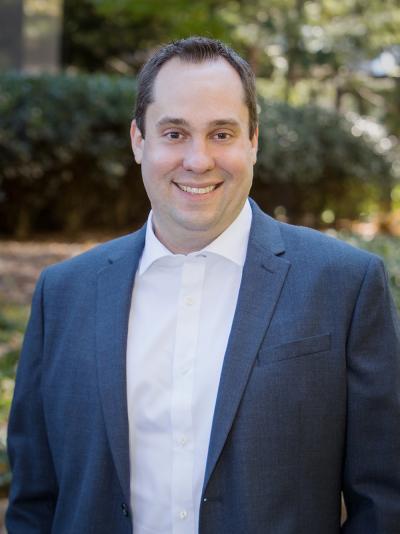Real estate private equity investment management company Peachtree Hotel Group was created in one financial crisis and is now looking to help hoteliers through another one.
Peachtree works with hoteliers through several different internal divisions, said Brian Waldman, Peachtree’s EVP of investments. One buys hotels, one builds and renovates hotels, one manages the owned hotels (as well as third-party properties), one manages assets, one—Stonehill—finances hotels and one handles the capital markets business that let the company make its investments.
Origins
Peachtree was originally founded in 2008 by Greg Friedman and Mitul Patel, both of whom had experience in hospitality. Friedman was working as a lender and was financing some of Patel’s projects. “The two of them got to know each other well, and started working together and started making direct investments in hotels together,” Waldman said.
Jatin Desai joined shortly later as the third partner, formalizing the company into a full investment management firm. The three launched an investment platform during the worst of the global financial crisis, which Waldman credits to Friedman’s background as a lender. “He came from a bank that did a lot of syndication with the smaller banks and community banks,” he said. The nascent company began buying notes with plans to restructure them. “We obviously had an ownership infrastructure in place, so if Plan A doesn't work, we're prepared,” he said. “Our primary business model is to restructure them and work with the borrower and give the borrower a runway to really get to the other side.”
Ups and Downs

At the end of the 2008 financial crisis, a lot of the same groups that Peachtree had worked with in buying notes were looking to the company to see if the company would lend to them. Calling hotels the “fifth food group” that are typically the last real estate sector to which banks want to extend loans, Waldman said there was a “void of capital” in the market: “The business transitioned from buying notes to originating first mortgages [and] bridge financing.”
Coming into this cycle, Waldman estimated that Peachtree was “the most aggressive buyer of first mortgage notes at hotels,” buying more than 150 positions, almost all of which worked out as planned. “So we were able to execute on that Plan A,” he said. In 2021, Peachtree acquired nine hotels for approximately $300 million, bringing the company’s portfolio of owned and managed hotels to 76, with 9,351 rooms.
Today, the company primarily invests in select-service and compact full-service hotels with premium brands, Waldman said, and invests up and down the capital stack. Last year, Peachtree’s total investment activity—including acquisitions, developments, lending and hotel investments—amounted to $2 billion in total capitalization through 140 transactions, a record for the 14-year-old business.
“Our competitive advantage is our ability to be nimble and shift depending on the opportunity,” Waldman said. The company is “agnostic” in terms of buying and selling, working with preferred equity or joint ventures: “We're very flexible in terms of structure, as long as we're structuring appropriately to box in our risk and get the appropriate risk adjusted return for that investment.”
Since the pandemic began, Waldman said that the company has faced a “very large” spread between asking prices and bids. “Owners were looking at what their asset was worth in 2018 or 2019 and they want to get back there,” he said. While prepandemic values may be the goal, Waldman acknowledges that they may not be able to reach it. “It's a different world today,” he said. “Assets are being repriced and there's a different component of risk.”
Peachtree has overseen ”a number” of structured transactions in which the company effectively recapitalized an asset, but the owner was able to remain in charge of part of the property or stand as a limited partner in the deal. “We can come in, we can bring in our horsepower—our management company, our ability to renovate the asset and our ability to bring in fresh debt [and] bring them along for the ride," Waldman said. "In a lot of cases, that just creates more value for everybody.”
Logic in Logistics
Peachtree’s investment team has come back to the company’s Atlanta offices to work together again. “Our business, our world, moves so quickly, and when you're not together, when you're not collaborating, I think there are a lot of things that you miss,” Waldman said. While many businesses may remain virtual and meet over Zoom, Waldman believes teams lose something when not together. Meeting virtually sounds great, he said—“until you lose your first deal or your first sale to someone that's willing to show up and meet their customer.” Zoom and virtual meetings still have their place, he added, and can help create a new sector of demand for remote workers.
Clicking with Clients
Michael Ritz, SVP of investments at Peachtree, said his team has been meeting with clients in person and exploring potential deals on location. “We invest in hotel real estate, and we need to go see the actual area,” he said. “It's always been very important … that we not only walk the asset that we're contemplating buying or walk the location of the site that we're potentially investing in [for] new development, but also the surrounding submarket just to understand, really, what the ins and outs of that investment are going to be.” The company, he added, views relationships with borrowers and potential future clients in the same light. “Meeting in person, whether it be having someone come visit our office or us going to walk the site with a potential client, has always been of really high importance for the entire firm.”
